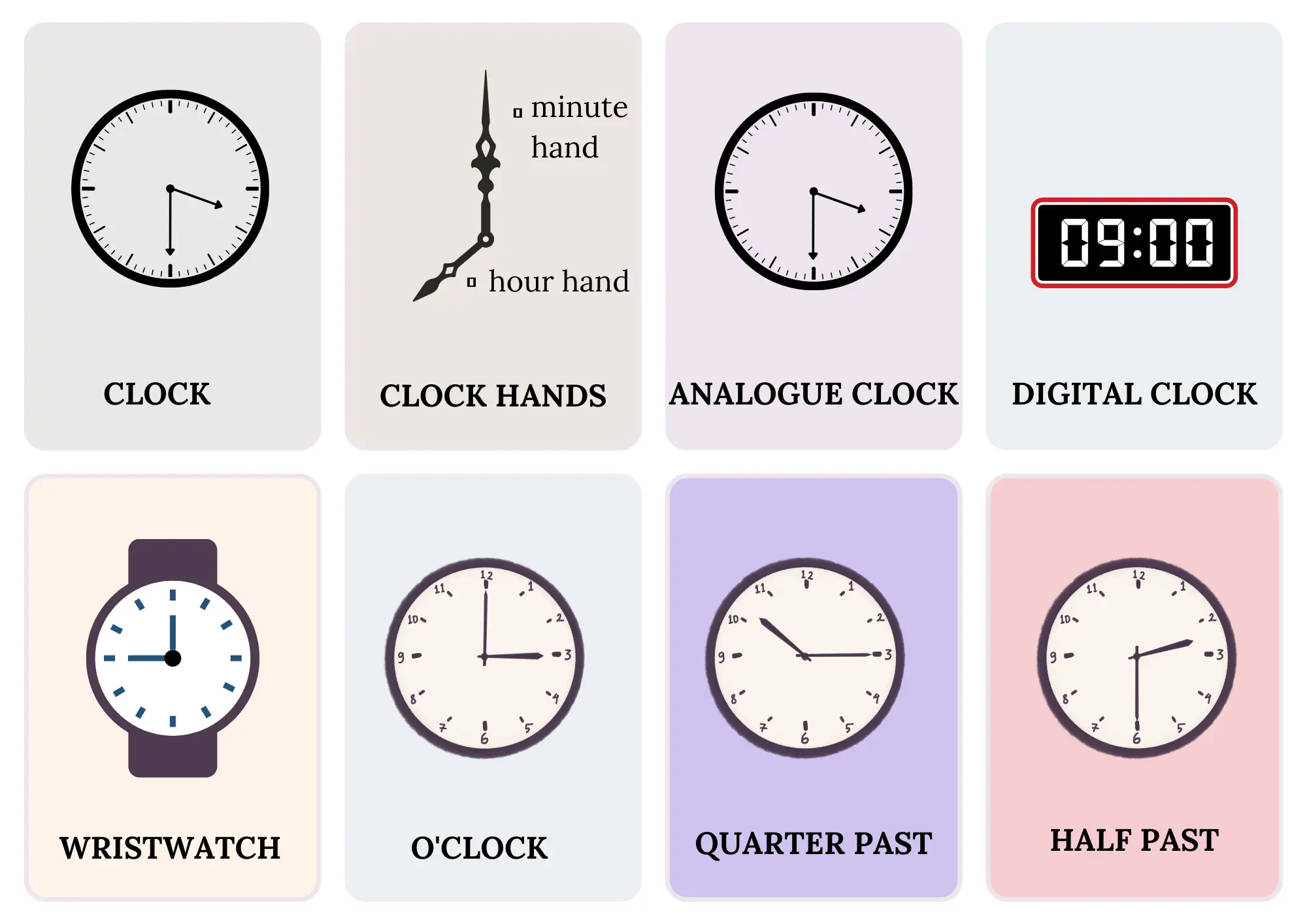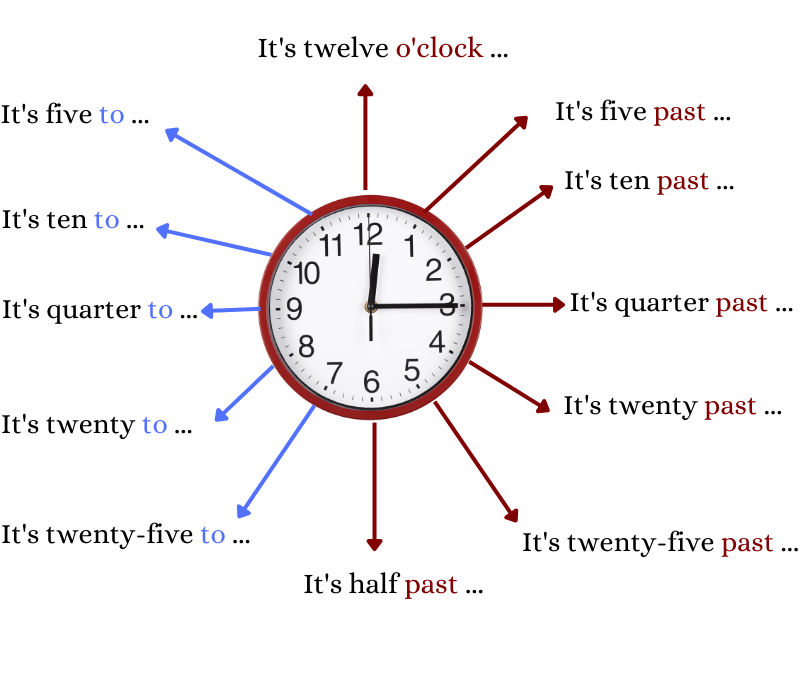To tell the time of the day, we use clocks. A clock has a short hand for the hour and a long hand for the minutes as illustrated in the picture below.

1. How to ask for the time in English?
There are many ways to ask for the time in English.
1. What time is it?
2. What's the time?
3. Do you have the time?
You can use one of the following examples if you want to be formal. For example, when you talk with your boss.
1. Could you tell me the time, please?
2. Excuse me, do you have the time, please?
3. Excuse me, could you tell me what time it is, please?
2. Telling the time
When people ask you what the time is, how would you respond? Let’s look at the various expressions we use to tell the time of the day.

It's one o'clock.
It's five past one.
It's ten past one.
It's quarter past one.
It's twenty past one.
It's twenty-five past one.
It's half past one.
It's twenty-five to two.
It's twenty to two.
It's quarter to two.
It's ten to two.
It's five to two.
There are different ways to talk about time in English. Here are some simple rules to help you understand.
2.1 Saying 'o’clock' and 'sharp'
We say o’clock when it is an exact hour. Another way to say this is sharp.
1. It’s one o’clock. → It’s one sharp.
2. The meeting is at three o’clock. → The meeting is at three sharp.
3. The train leaves at seven o’clock. → The train leaves at seven sharp.
2.2 The 12-hour system: a.m. and p.m.
In many English-speaking countries, we use the 12-hour clock to tell the time. The day is divided into two parts:
A.M. (morning hours) → midnight (00:00) to noon (12:00)
P.M. (afternoon and evening hours) → noon (12:00) to midnight (00:00)
2.3 Example sentences using a.m. and p.m.
1. I wake up at 7 a.m. (morning).
2. Lunch is at 12 p.m. (noon).
3. We have dinner at 6 p.m. (evening).
4. I go to bed at 10 p.m. (night).
2.4 Alternative time expressions
Instead of a.m. and p.m., you can also use these expressions:
| Time expression | Time range | Example |
|---|---|---|
| in the morning | 6 a.m. - 11:59 a.m. | I wake up in the morning at 7 o’clock. |
| at noon / at midday | 12:00 p.m. | Lunch is at noon every day. |
| in the afternoon | 12:01 p.m. - 5:59 p.m. | We have English class in the afternoon at 2 p.m. |
| in the evening | 6 p.m. - 8:59 p.m. | I watch TV in the evening after dinner. |
| at night | 9 p.m. - 11:59 p.m. | I go to bed at night at 10 p.m. |
2.5 Examples
1. I go to school in the morning at 8 o’clock.
2. Lunch is at noon.
3. We watch TV in the evening after dinner.
4. I sleep at night at 10 p.m.
5. I need to leave the party before midnight.
6. The nearby supermarket closes at noon but reopens at 2 p.m.
7. My train arrives at three in the afternoon.
8. The last train leaves Granada at ten in the evening.
Under the 24-hour time format, we do not use the a.m. and p.m. notations.
It's ten hundred.
It's ten oh five.
It's ten forty-five.
It's twenty oh five.
It's oh six twenty.
It's oh seven hundred.
